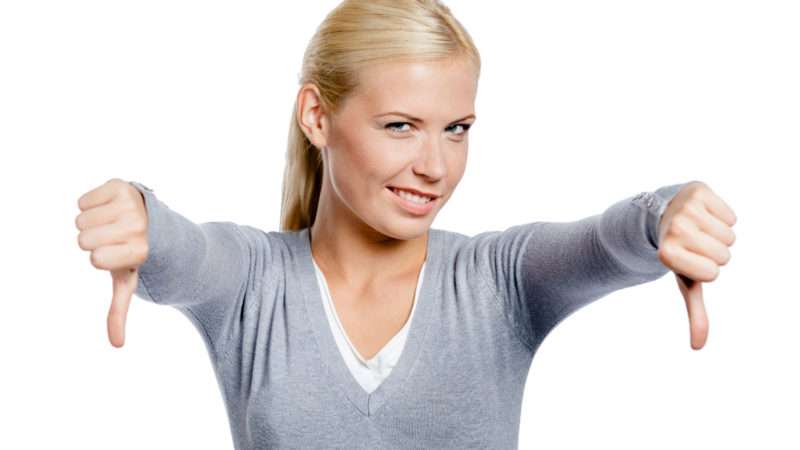
Voters who can’t stand either major-party presidential nominee could be one of the keys to the election—and unlike in 2016, that might be bad news for President Donald Trump.
Four years ago, in a contest between two of the least-liked presidential nominees in history, Trump benefitted from the number of voters who found him slightly less detestable than Hillary Clinton. But a new Morning Consult poll suggests that Trump isn’t doing as well with the “haters demographic” this time around. Voters who hold unfavorable views of both Trump and presumptive Democratic nominee Joe Biden are more likely to hold their nose and vote for the former vice president than for the incumbent.
Exit polling on Election Day 2016 showed that voters who did not like either major party candidate ended up backing Trump over Hillary Clinton by a 17-point margin. With less than four months to go until Election Day 2020, Morning Consult’s new poll shows Biden with a 29-point lead with the same group. Among the 43 percent who say they are undecided, Biden has a 19-point lead when they are forced to make a choice.
The group also feels more strongly about Trump than it does about Biden: 66 percent saying they have very unfavorable views of the president, while only 40 percent say the same about Biden. Again, this is only looking at voters who say they have unfavorable views of both.
The influence that the so-called “haters demographic” could have on the election depends on a few things.
First, because of the Electoral College, there’s a geographic limitation on how much of a role voter anger can play. No matter how much a Californian might hate Joe Biden, California is going to be blue state.
Second, like all polls that attempt to organize individuals into groups, this one can be a bit fuzzy around the edges. There are people out there who might say they dislike both candidates but are already fairly certain of how they will vote. Many conservatives, for example, might have voted for Trump in 2016 not because they particularly liked him but because they wanted a Republican president to pick judges. That’s a valid way to sort through an awful choice like the one presented in 2016, and it demonstrates that some voters are motivated by more than their personal feelings towards the two candidates.
Then there is the role of third parties. The abysmal approval ratings for Trump and Clinton in 2016 likely contributed to the record-shattering number of votes received that year by former New Mexico Gov. Gary Johnson, the Libertarian Party’s presidential nominee.
Few observers think that this year’s Libertarian ticket—led by the Clemson psychologist Jo Jorgensen—will match Johnson’s performance. But the Morning Consult poll didn’t include any third-party candidates, so it may have a blind spot when it comes to whether members of the so-called “haters demographic” might refuse to vote for both Trump and Biden. Some might simply stay home; others might try to find an alternative candidate they actually like.
With negative partisanship driving so much of American politics these days—particularly on cable news and social media—it shouldn’t be too surprising that voters with a negative view of both Trump and Biden are likely to decide the election. And with more than 100 days to go before the polls close, both candidates will have ample opportunities to add to that demographic.
from Latest – Reason.com https://ift.tt/3eEcnwb
via IFTTT